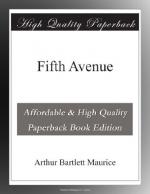“Lotos and Arcadian: both stuff for dreams. The one excogitated in spring-time, when Nature was taking her break-of-day drowse, previous to getting up and going about business; the other suggestive of Nature indulging in a half-light reverie in a sort of crimson and scarlet dressing-gown, previous to putting on her night-cap and going to bed, after a hard summer’s work. The one reminding of a land where it is always afternoon of a day in the last of June, when one can almost hear the music of corn-growing, the mystic throes of buds toiling into blossom; the other of a land where it is always about eight o’clock in the morning with the dew still on the meadow-grass, and the world rubbing its eyes and brushing away cobwebs of dream, before buckling down to the struggle. The one somewhat reminiscent of Egypt and crocodiles, lisping palms and Arabs, of long and lotos-eating days of keff, in which even the lazy hours loiter in shady nooks, and the wind holds its breath in sympathy with the general doziness, and seems to be listening to something; the other of vivid Greek life, with its shepherds:
“’Piping on hollow
reeds to their pent sheep,
Calm be thy Lyra’s
sleep,’
of Pindar, of Orphic song, of lost Milesian tales, of a life growing into sculpture or breaking into sinuous hexameter waves. The one mystic, the other beautiful, both symbolical.”
With this rhapsody Mr. Fairfield introduced the Arcadian Club of New York, an organization that for a time threatened to rival the Lotos in the latter’s particular field. Writing men snatched up into the clouds in those days for their metaphors, and combed Mythology for illustrations with which to garnish descriptions of the most commonplace events of everyday life. Here is another gem from Mr. Fairfield’s book, also in his chapter about the Arcadian Club.
“Gentlemen of society, bankers, stylish young men with vast ideas of personal importance, amateurs and patrons! City Hall is the brain of New York, of the continent, and it is one of the laws of the world that brains will rule. Rebel as muscles merely of the body politic, and ye rebel against inexorable law: that scribbling literati in the fifth story—for newspapers like men have their brains in the upper story—is more potent than you in settling the artistic position of a Lucca or a Rubenstein, a Dickens or a Dore, a Tennyson or a Carlyle. Have ye ever read a wonderful little ballad by Uhland, entitled ’The Minstrel’s Curse?’ If so, recall it—for it is typical, not of that which comes by-and-by, but of that which is: the exponent of the beautiful having become in his way an autocrat. Unfortunate it is that journalism is not always representative of the best culture—that managing editors will now and then entrust criticism to incompetents, but its popular power is quite the same, notwithstanding, and this good the popular newspaper has wrought, to wit—that the exponent of the arts, media of culture as they are, is no longer dependent upon the caprices and whims of isolated patrons, nor hampered in his freedom of expression by canons of theirs.” And so on ad infinitum. The present writer confesses in all humility that he has not the least idea as to what the eloquent gentleman meant. But remember that it was the age that produced the “St. Elmo” of Augusta Evans Wilson.




